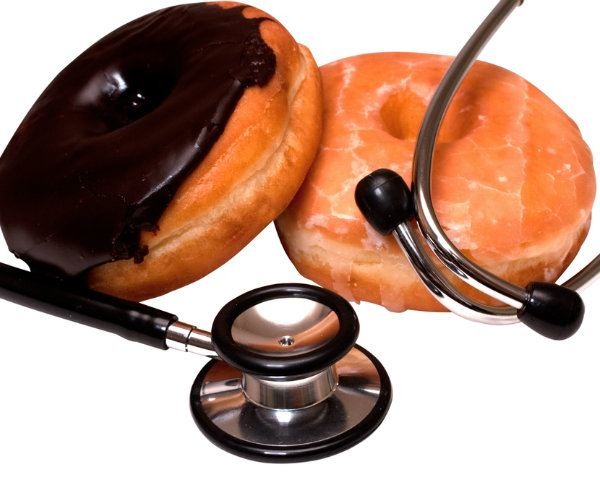11 Foods Doctors Won't Eat (And Why)
Questioning the quality of the food you consume is something worth doing. But what exactly defines "good" food? We aren't just asking what tastes good or looks good, but rather what food is good down to its core, and what separates it from all the other junk? The answer seems pretty clear: fruits and vegetables are good, sweets and candies are not so good. But sometimes to know why something is truly "good," you have to be able to identify and understand what makes something "bad."
Click here to see 11 Foods Doctor's Won't Eat (and Why) (Slideshow)
"It isn't just how you cook it, it is what you cook," says Dr. Michael Hirt, internist and board certified nutritionist at the Center for Integrative Medicine.
We spoke with Dr. Hirt and four other doctors across the country in various stages of their careers and lives to find out what foods they won't eat, why they don't eat them, and how they feel this information can help you. After all, you ask a doctor's opinion on everything, so why not ask what they do to keep healthy? But to begin, a disclaimer:
"The dietary habits of doctors range from quite unhealthy to fairly unhealthy," explains Dr. Rohit Chandra, child and adult psychiatrist at Massachusetts General Hospital-Chelsea and instructor in psychiatry at Harvard Medical School. "Doctors are notorious for not taking care of themselves, especially [when it comes to] exercise and overwork[ing], but perhaps diet as well. So one should keep in mind that doctors as a whole may not eat as well as one might imagine."
With that being said, in general the doctors we spoke with all commented on how they see patients daily who are in a compromised state of health because of the foods they consume. After watching patients back themselves into a nutritional corner for years, it is fair to say that these doctors are compelled to live their best nutritional life and practice what they preach. Dr. Hirt says, "It all comes down to the three S's. Sleep, stress, and sugar — that is what is killing this country."
The problem, unanimously, begins with a lack of education, from kindergarten to in some cases even medical school. While there are resources out there like Choose My Plate, there are barriers to self-education, ranging from low economic status to the unavailability and plain ignorance regarding food labeling.
"We need to advertise on a massive level," says Dr. Luis Pacheco, family practice and medical director of transitional care at the California Hospital Medical Center, who caters to families that may not have access to online educational tools. "Wellness and healthy options need to be put in the classroom. We are going to have a devastating epidemic that has already started with heart conditions and diabetes."
The education problem surrounding nutrition even goes as high as medical school.
"Only about half of medical schools offer a mandatory nutrition course," explains Dr. Chandra. "The medical school I attended for one year of graduate school had one, whereas the four-year medical school I attended did not. The pedagogy in medical school nutrition courses likely involved the USDA's food pyramid (which appears to promote carbohydrate consumption and dairy consumption at the expense of other proteins, high-fiber foods, and good fats), [so] the advice [a doctor] gives to you may not be accurate."
Dr. Chris Tolcher, pediatrician and spokesperson for the American Academy of Pediatrics, knows that when it comes to choosing a healthy diet there are many things to consider. "I am a big believer in practicing what I preach," he says. "I tell my patients, 'Hey I eat this thing, too, but I do so in moderation.' There are foods we have evidence for as being harmful, and foods we have theories on that come down to a personal choice of what we feel is an OK risk or specific dietary needs."
While the doctors we consulted of course have differing opinions on what foods they would never eat themselves, there were a few unanimous choices. For instance, "processed meats [like] bologna, ham, and hot dogs, all of which are high in nitrates, fats, and salt," says Dr. Joseph Maroon, University of Pittsburgh Medical Center neurosurgeon and vice chairman of the University of Pittsburgh School of Medicine's department of neurological surgery. Maroon was the longtime team neurosurgeon for the Pittsburgh Steelers and also just finished his fifth Ironman Triathlon in Hawaii... at age 73. Other choices included unpasteurized milk, soft drinks, and even a few surprising foods you'll have to click through our slideshow to see.
So get ready for some awesome nutrition education straight from the doctor's mouth!
This article was originally published on December 05, 2013.
